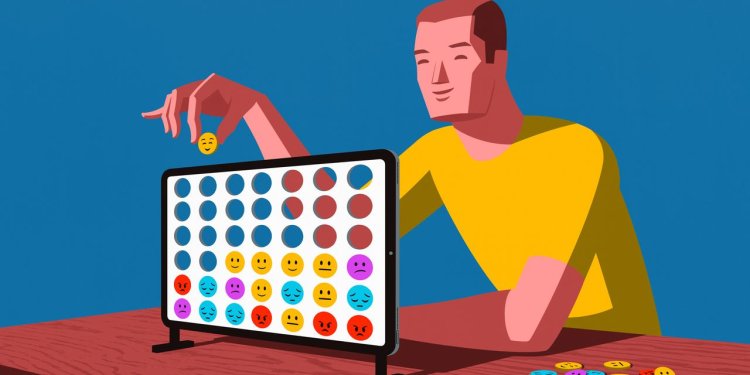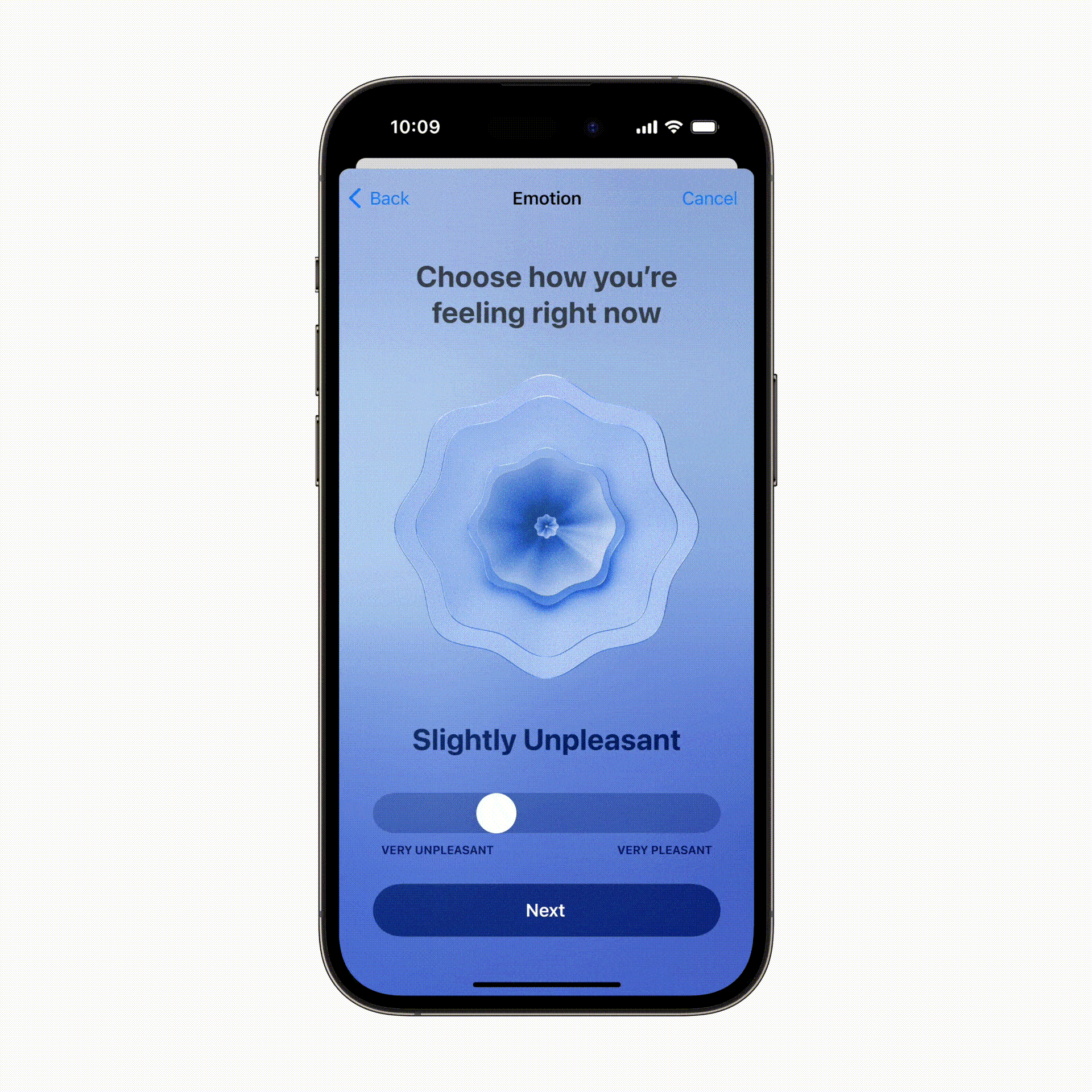Can Tracking Your Moods Make You Happier?
Apple is pushing into mental health with an emotion gauge for iPhone and Apple Watch Illustration by Jon Krause Illustration by Jon Krause By Julie Jargon July 15, 2023 5:30 am ET Tracking daily steps can motivate us to walk more. Tracking sleep can reveal problems such as sleep apnea. Can tracking our moods make us happier? There are now many tech ways to log where you fall on the happy-sad spectrum each day. Fitbit offers mood logging in its stress-management tool. Period-tracking apps, such as Clue and Flo allow women to see how their moods fluctuate with their cycles. Apps like Daylio focus on mood. The latest big player to enter the arena is App


Tracking daily steps can motivate us to walk more. Tracking sleep can reveal problems such as sleep apnea. Can tracking our moods make us happier?
There are now many tech ways to log where you fall on the happy-sad spectrum each day. Fitbit offers mood logging in its stress-management tool. Period-tracking apps, such as Clue and Flo allow women to see how their moods fluctuate with their cycles. Apps like Daylio focus on mood.
The latest big player to enter the arena is Apple. Its latest software updates—iOS 17, iPadOS 17 and WatchOS 10, due this fall and already out in public beta—include a way to log your state of mind. Apple’s Health app also includes a mental-health questionnaire that can assess depression risk.
Many mental-health professionals say simply being aware of your mental state can identify patterns and improve well-being. When people can see associations between their moods and factors like sleep and exercise, these doctors say, it can be even more powerful.
But some research suggests that people don’t experience lasting benefits because they don’t track often or long enough.
Why log your mood?
Apple’s push into mental health comes as the country is experiencing a youth mental-health crisis and growing numbers of adults are struggling with depression. The U.S. Preventive Services Task Force last month completed recommendations that doctors screen adults ages 19 to 64 for anxiety disorders and all adults for depression.
If you already track your exercise and sleep on Apple devices—and the amount of time you spend in daylight, with the Apple Watch update—you will be able to view that data alongside your moods. Then you can figure out if you feel better on days when you sleep well or exercise more.
After selecting how they feel, people can then choose factors that have the biggest impact on their feelings, like travel or family. The features will be available in the Health app on iPhones and iPads. On the Apple Watch, it’s in the Mindfulness app.
Apple device users who track their moods will be able to share the log with their doctor. (Apple says it doesn’t share Health app data with third parties without the user’s permission.) Health app data is encrypted on locked iPhones and iPads. Health data synced to iCloud is encrypted in transit and on Apple servers.
“When people keep track of emotional fluctuations and see linkages, it can lead them to make changes in their behavior,” says Michelle Craske, a psychology and psychiatry professor at UCLA who has studied the effects of mood tracking.
Frequency and negative feelings
Real-world use of these apps doesn’t always match the aspirational use, researchers have found.
“A lot of mood-tracking tools are built on the idea that people would track their mood at least once a day because they’re supposed to identify patterns and triggers,” says Stephen Schueller,
associate professor of psychological science at the University of California, Irvine, who has studied mood-tracking apps.Schueller and his colleagues found that most people really only track their moods a couple of times a week. They also discovered a paradox: While people are drawn to such apps by negative life events—a divorce, a death—they are more inclined to document positive moods.
Similar issues with self-reporting have been found when it comes to tracking diets. People note the healthy foods, and conveniently neglect to mention the chips and sweets.

People can log how they feel on a sliding scale in Apple’s Health app.
Photo: Apple
An Apple spokeswoman said the company carefully designed the mood-tracking feature to display calm colors and shapes for both pleasant and unpleasant emotions, so people wouldn’t feel ashamed of indicating negative feelings.
Accentuate the positive
While naming negative emotions can serve to damp those feelings over time, Craske says, even tracking just the good vibrations can be beneficial.
“We’re more likely to savor the moments associated with those positive moments, like a social gathering,” she says, “and are more likely to engage in those activities again.”
Some studies have shown mixed results.
Researchers in the U.K. studied a group of teens and young adults with mental-health issues and a similar group without reported issues. For both, identifying feelings in a tracking app significantly reduced momentary negative moods and impulsivity. But over the course of the study, the apps didn’t appear to have a significant effect on the participants’ emotional regulation, awareness or clarity.
SHARE YOUR THOUGHTS
Do you think tracking your moods can make you feel better? Join the conversation below.
Schueller said that while there isn’t enough evidence to say definitively that tracking your moods makes you happier, there aren’t any downsides—except the few extra minutes a day on your phone.
“If it allows you to get a more nuanced picture of your life, why not?”
—For Family & Tech columns, advice and answers to your most pressing family-related technology questions, sign up for my weekly newsletter.
Write to Julie Jargon at [email protected]
What's Your Reaction?

















